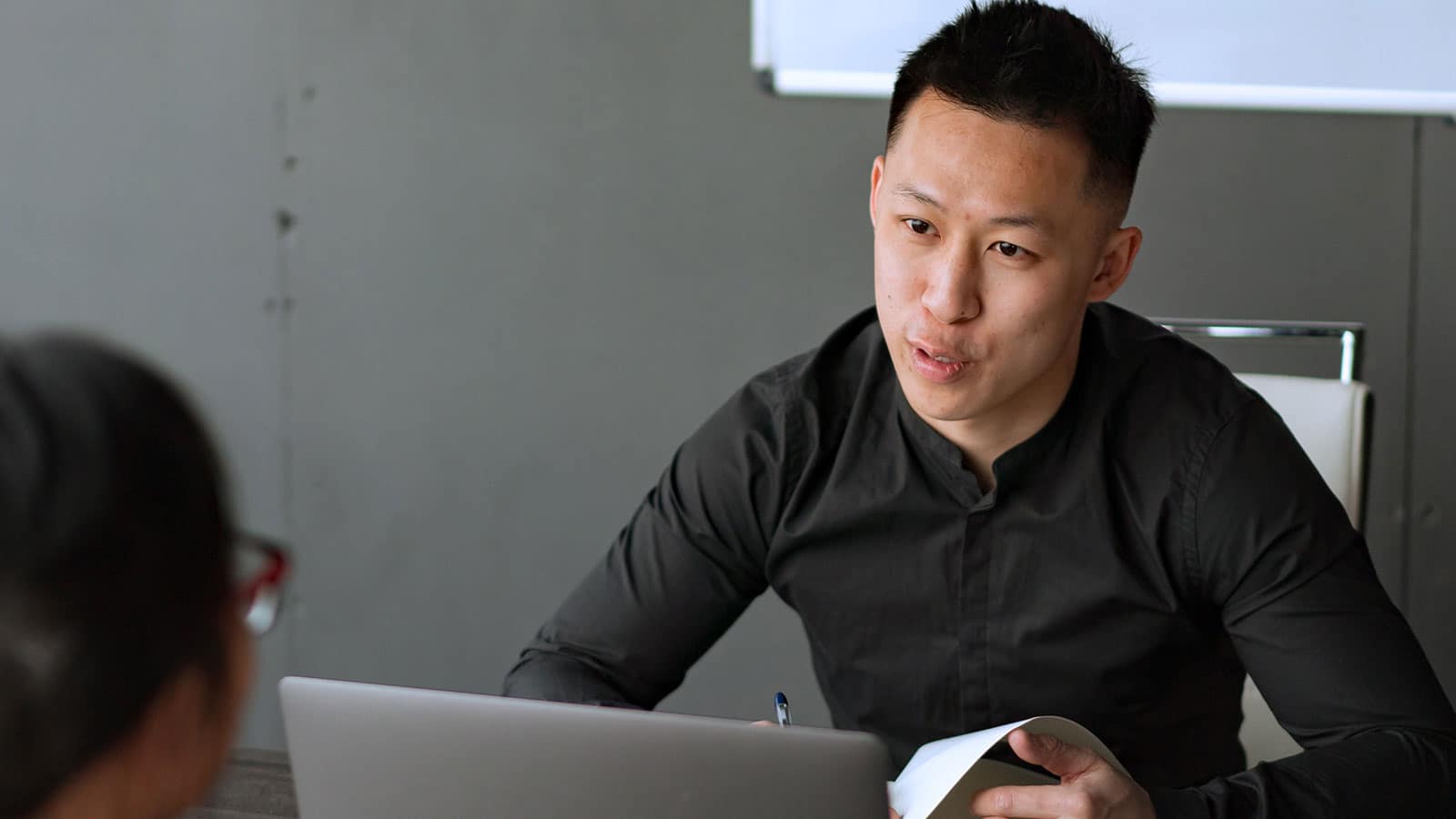Last Updated On: July 1st, 2024
1. What time of year do private school interviews generally take place?
They start at the beginning of October and go through the end of January, since many schools have application deadlines in December or early January.
2. How do admissions personnel typically structure the interviews?
Every school varies in their approach to interviews, but they’ll ask what the student’s favorite subject is, what they like about their school (or what they might want to change about their school), how they spend their time outside of school, and ultimately why they’re interested in that particular school. A lot of schools also have an essay component that’s roughly 20-30 minutes, whether it’s at the time of the interview or at a separate time. The prompts tend to be similar to the ISEE essay prompts.
3. What are admissions personnel looking for during the interviews?
Curiosity and an eagerness to learn, especially for middle school students. And kids who are going to get involved at your school. Even if a kid is an extraordinary ‘something,’ are they going to do that ‘something’ at your school, or are they so tied to something outside of school that they won’t have time to get involved in your sports or arts programs? Will they be a community member? Obviously, the student has to have strong enough academics, and they have to be excited to join whatever type of community the school offers, whether it’s an all-girls school, a school that’s pretty academically rigorous, or a project-based school. They want to make sure that the student is looking for what that school provides.
4. What are the biggest mistakes you see students or parents making when it comes to the interview process?
In my role as a consultant, I arm parents and students with information and preparation so that they don’t stumble during their interview process. But the mistake that I’ve seen in the past is a lack of interest in or knowledge about the school that they’re applying to. When you’re applying to a school, the admissions personnel hope to be meeting someone who’s excited about the possibility of attending their institution. So if a family shows up, and they aren’t enthusiastic, they don’t know much, or they haven’t visited a school, that could be seen as a mistake.
You also don’t want to place blame. If they’re asking you, “what are your child’s strengths or areas of growth?” which is a common application question, you don’t want to blame your current school or its teachers. You want to tie your answers up with a bow. If there’s a negative, then you want to find the positive: “whereas this is challenging for Gaby, we’re doing XYZ to improve her mathematics.”
That said, I wouldn’t put so much pressure on the interview. There are no fatal missteps, though I know families feel immense pressure when they go through the process. It is important for families to remember that the interview is one piece of the puzzle in getting to know a family. The application, interview, required testing, teacher recommendations and transcripts all help the admissions committee get to know an applicant.
5. You mentioned that students and parents should arrive at their interviews knowing what they like about the school, either academically or culturally. What’s the best way to do that research, aside from a tour?
Schools measure a family’s interest by how much they’ve engaged with the school and therefore how knowledgeable they are about their own interest. The interview might feel
harder when you turn in your application very early, like in September, because you will not have had as many opportunities to get to know the schools you’re applying to (open houses typically happen in October or November). There are other ways families can get a feel for a school and its culture, like attending a sporting event or a play.
If families don’t have the chance to visit, then the websites are a good way to get to know a school and what they offer academically, or in athletics and arts. With Covid, schools had to reimagine how they engaged families. This was the first year where pretty much all of the schools have in-person visits, but some interviews were still via Zoom, or had the option of happening via Zoom, so schools and families had to adjust to this online engagement. In addition to the open house events, schools have a lot of virtual events for parents to learn without having to drive to campus. For a kid, it’s more about exploring a school’s website. I’ll sit with kids and go through the clubs that a school offers, classes that sound interesting, and ways that they would want to get involved in the community.
Another way to gain some frame of reference for school interviews is to spend a week there over the summer. Many schools have summer camps. For a kid to get on campus and do a week of debate camp or basketball camp and see what it feels like to be there has been really helpful for my families. Then we can get started on applications over the summer to alleviate the work of completing five applications in the fall, when there’s so much else going on.
6. Should students or parents come with questions for the admissions personnel?
I always encourage students and parents to have a couple of questions to ask. One, it shows a level of interest and inquisitiveness about a school and its community. Two, I think it’s helpful because every kid is different. That’s why there is such a range of schools out there. Some are better fits than others.
7. How do you work with kids to bring the pressure of an interview into perspective?
When I first meet with a child, I essentially try to help them see that it’s just a conversation. I tell them, “Since we’re going to work together, it’s helpful for me to get to know what you like, what you don’t like, what your school experience has been like so far, and what you like to do in your free time, so that we can help you find the best next school.” I phrase it like that so we can have a more natural conversation. I want to see what makes them spark so we can draw on that, and so, when they’re in the interview session, they’re not nervous to talk about themselves.
Having to brag about yourself can be hard, so drawing those answers out of a child in a comfortable way and letting them know that it’s good to share is important. That way, schools can get the full picture of who they are and what they can contribute to a community.
8. How can an admissions consultant or tutor help a student prepare for the interview/admissions process?
Working with a consultant means having the expertise of someone who’s gone through this process several times. A sense of ease. You have a trusted partner to help you navigate a process that is not very uniform. For the interview process in particular, the role that I play is helping kids feel comfortable and confident going into an interview, so that they can share fully about who they are and how they could contribute to the school. With anything you do, the more you practice, the better you’re going to be. Obviously, you want it to be authentic, but preparation helps a student put their best foot forward and be less nervous.
In terms of the overall process, my goal is to help families identify good-fit schools for their child and their family, and then to support them through every step of the process, from identifying schools to helping them put together good applications with strong parent-student essays. With the timed writing assessments, having someone who can sit with a student and help them understand what they’re looking for in a 30-minute essay can be helpful. They’re not looking for every detail, but rather they’re asking, “can this student put together a good paragraph? Is there an introduction, body, and conclusion?”
And then it’s the little things that are hard to even put into words. All the questions that families have throughout the process, like, “should I be asking for recommendation letters from this person?” or, “when do I need to be doing XYZ?” This time of year, it’s talking things through with families and helping them once they get their offers. Or, when they don’t get their offers, it’s helping them to navigate the next steps.
9. How do you navigate it when someone is disappointed by their results?
If you’re placed on waitlists, you want to immediately let them know that you’re eager to remain in the wait pool. Then, write schools an email thanking them and saying that you remain interested. Learning how to communicate with schools is one way that parents can lean on me. They can ask me questions, versus bombarding the admissions office—otherwise they might feel you’re high maintenance before you’ve arrived.
10. When should parents start working with an admissions consultant?
I usually start with families in the spring. Based on what they’re looking for, we’ll come up with a list of schools that I think we should start exploring. The application process is quite intensive, especially when a kid is, let’s say, in 6th grade and trying to get good grades or prepare for the ISEE on top of all the other stuff they have going on. So I always encourage getting an early start.
Photo by Mikhail Nilov



















